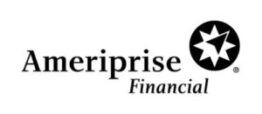
Newport Coast Securities, a broker-dealer headquartered in New York, New York, has been fined $1,000,000.00 and expelled from Financial Industry Regulatory Authority (FINRA) membership per an Extended Hearing Panel Decision in which Newport Coast Securities was found to have effected trades in customer accounts on a quantitatively unsuitable basis, churned customer accounts, made qualitatively unsuitable recommendations, and failed to supervise the activities of the firm’s stockbrokers. Department of Enforcement v. Newport Coast Securities, Inc., No. 2012030564701 (Oct. 17, 2016).
The Decision and the $1,000,000 fine, however, is a joke because on September 16, 2016, or more than one month earlier, Newport Coast was expelled by FINRA for the failure to pay an $28,000 arbitration award in Grant McNiff v. Newport Coast Securities, FINRA Arbitration No. 14-03861, not including puntive damages of $30,000, interest at 10%, and sanctions of $35,000 against Newport, based upon its failure to comply with discovery. Newport Coast was represented by Dan Druz, Esquire of Belmar, New Jersey.
Public Disclosure records presently indicate that the officers of Newport Securities each own less than 5% of the company, 75% of which is owned by Rubicon Financial, Incorporated. Who owns Rubicon Financial or who persons exercising control over Newport Coast prior to their expulsion remains a mystery. One may reasonably assume that upon or at or about the time of Newport’s expulsion, its registered representatives migrated or cockroached to a new firm.
According to the Decision, from 2008 through 2012, Newport Coast Securities’ registered representatives excessively traded in customer accounts, subjecting customers to excessive cost/equity percentages and turnover rates. The five registered representatives cited in the Decision, including Leone, LaBarbara, Costanzo, Bartelt, and Levy, reportedly traded at levels which far exceeded the thresholds for excessive trading determined by the National Adjudicatory Council and the Securities and Exchange Commission.
Particularly, Leone’s customers had cost/equity percentages ranging from 105.22% to 280.14% and turnover rates ranging from 85.81 to 172.84; LaBarbara’s customers had cost/equity percentages ranging from 68.23% to 142.07%, and turnover rates ranging from 16.69 to 39.98; Levy’s customers had cost/equity percentages ranging from 50.7% to 68.82%, and turnover rates ranging from 11.81 to 16.15; Costanzo’s customers had cost/equity percentages ranging from 100.02% to 120.71%, and turnover rates ranging from 23.18 to 27.41; and Bartelt’s customers had cost/equity percentages ranging from 52.96% to 200.49%, and turnover rates ranging from 18.93 to 72.22.
The Decision stated that Newport Coast Securities authorized the registered representatives to solicit investors and enabled them to determine the level of markups and markdowns, or commissions in which customers were charged. The registered representatives’ trading was apparently ratified through Newport Coast Securities, and the firm directly benefited from the markups, markdowns, and commissions which customers incurred at the hands of the registered representatives. FINRA deemed that Newport Coast Securities’ conduct, via the five registered representatives, consisted of trading in a quantitatively unsuitable manner, in violation of FINRA Rules 2010 and 2111, NASD Rules 2110 and 2310, and IM-2310-2.
FINRA also deemed that Newport Coast Securities was liable for the registered representatives’ churning of customer accounts. The Decision stated that registered representatives, in furtherance of their own personal financial interests, willfully disregarded the interests of the affected customers. FINRA found Newport Coast Securities to have violated Securities Exchange Act of 1934 Section 10(b), Rule 10b-5, FINRA Rules 2010 and 2020, and NASD Rules 2110 and 2120.
Per FINRA, Newport Coast Securities was presented with numerous red flags regarding the trading conducted by the registered representatives; the Decision noted such red flags as riskless agency and principal trades, significant customer losses, turnover rates exceeding 100, cost/equity percentages exceeding 100, high volume trades, customer accounts which had been over-concentrated in certain positions, and excessive margin use.
Newport Coast Securities, according to the Decision, failed to address red flags and ensure that its staff was in compliance with rules, regulations, and laws of the securities industry. For example, Newport Coast Securities assigned a supervisor, Arena, to supervise Leone. Yet, Arena was provided no training by Newport Coast Securities as to his supervisory responsibilities in this regard. Arena reportedly testified before FINRA that he never reviewed Leone’s statements for purposes of a suitability review, nor contacted customers to determine whether Leone’s trading was appropriate for customers. Further, Newport Coast Securities seemingly never provided Arena with the proper tools which could allow for faulty trading patterns to be detected.
The Decision additionally indicated that the firm’s chief compliance officer, KK, never declined account documents which the registered representatives submitted. In one example provided by FINRA, KK provided approval for the account of customer JS to be opened for margin trading, even though JS had no experience of investing prior to opening his account, was retired, and had $50,000.00 in liquid net worth. JS’s account was purportedly churned by Levy, causing JS’s entire liquid net worth to vanish.
According to the Decision, Newport Coast Securities was also provided reports through a clearing firm, Wedbush Securities, Inc., which referenced when registered representatives traded outside of a set criteria via considering turnover rates, customer losses, and the number of trades executed. Despite Newport Coast Securities’ apparent reliance upon such an exception report, the firm did nothing in response upon a showing of irregular and hazardous trading effected by three of the registered representatives, such as placing restrictions on the registered representatives.
Two of the five registered representatives reportedly utilized another clearing firm, Pension Financial Services, which provided exception based reports detailing high commissions or trading volume. These reports, which demonstrated the registered representatives’ excessive commissions and high trading volume, were provided to Newport Coast Securities; however, no restrictions were placed on the registered representatives.
As a general matter, “clearing firms” cannot be held liable for performing “routine,” ministerial or administrative acts, and are not liable to the customers of the “introducing broker” under traditional theories of suitability or breach of fiduciary duty.
Clearing firms, however, have a duty to provide their customers with accurate customer statements, they have a duty to investigate and not to conceal the wrongful conduct of their introducing brokers, and also have a duty not to participate in, facilitate, or disregard, for their own financial motives, the otherwise wrongful conduct of their introducing brokers.
However, clearing firms are, and have been held liable for the acts of the introducing broker where: they are aware of the introducing broker’s misconduct or materially participate in the misconduct. Where clearing firms “exceed their traditional role as a clearing firm performing mere ministerial or routine clearing functions,” Arbitration Awards are regularly issued against clearing firms:
• Kostoff v. Fleet Securities, Inc., NASD Arbitration 04-04259 (2005)(clearing broker was held liable to the customer for $114,375.10 in compensatory and $343,125.30 in punitive damages (court upheld arbitration award at Kostoff v. Fleet Secs., 506 F. Supp. 2d 1150, 1153 (D. Fla. 2007)).
• Koruga v. Hanifen Imhoff Clearing Corp. aka Fiserv Correspondent Services, Inc. et al, NASD Arbitration No. 98-04276 (2000)(clearing firm was found jointly and severally liable for damages of$1,719,033.00 (Ex. G”)(award appealed and upheld at Koruga v. Fiserv Correspondent Servs., 183 F. Supp. 2d 1245, 1246 (D. Or. 2001), aff’d, 40 Fed. Appx. 364 (9th Cir. 2002)(“panel made specific factual findings that [clearing firm] was directly involved in the challenged transaction and materially participated in the wrongdoing”).
• McDaniel v. Bear Steams, NASD 97-00497 (2001)(clearing firm was held jointly and severally liable for $1,700,000.00 which included compensatory damages, punitive damages, sanctions and legal fees (award appealed and upheld at McDaniel v. Bear Stearns & Co., 196 F. Supp. 2d 343, 347 (S.D.N.Y. 2002)).
• Estate of Feltyberger v. Gruntal Regional Clearing and Kashner Davidson, NASD Arbitration 93-00903(1995)(the clearing broker was held jointly and severally liable for damages of $218,669.00).
• Greenebaum v. Bear Stearns, MFI Investments, NASD Arbitration 95-04099 (1996)(clearing broker being jointly and severally liable with introducing broker).
• Masood v. Prudential Securities, NASD Arbitration 95-04922 (1996)(clearing broker was held liable for $64,061.59).
• Almeida et. al. v.J.W. Charles Clearing Corp., NASD Arbitration 94-03620 (1996)(award against clearing broker for approximately 18 Claimants).
• Harvey Glicker, Ind. TTEE et. al. v. Southwest Securities and Nationwide, NASD Arbitration 96-03012 (1997)(the Arbitration Panel denied clearing broker motion to dismiss, held liable for damages and plus attorney fees).
• Ammann v. Rimson &Co., Emmett A Larkin Company, Inc., et. al., NASD Arbitration 96-01837 (1997)(clearing broker Larkin had its motion to dismiss denied and then was held liable for $45,000.00 in damages).
• Short, et. al. vs. Lefkaditis et. al. and Bear Steams, NASD Arbitration 98-02201 (1999)(joint and several award against Bear Stearns).
• Mussman v. Stratton Oakmont, Inc., Bear Stearns, et al., NASD Arbitration No. 94-04825 (award against Bear Sterns for damages plus attorney’s fees).
• West v. Gant, Hanifen and Shipley, NASD Arbitration No. 93-01356 ((joint and several award against Hanifen Imhoff).
Courts almost without limitation uphold these awards. It is well settled that where a clearing firm “moves beyond performing mere ministerial or routine clearing functions and becomes actively and directly involved in the introductory broker’s actions, it may expose itself to liability with respect to the introductory broker’s misdeeds.” Berwecky v. Bear Stearns & Co., 197 F.R.D. 65 (S.D.N.Y. 2000)(finding plaintiffs’ claim against Bear viable where complaint alleged that Bear “shed [its] role as a mere clearing broker for [Baron], and with actual knowledge, directly participated in the heretofore described scheme.”). In Fox Int’l Rels. v. Fiserv Secs., Inc., 490 F. Supp. 2d 590, 608 (E. D. Pa. 2007), the court denied in part and granted in part clearing firm’s motions to dismiss. Denial granted as to claims supported by sufficient allegations; Klein v. Oppenheimer, 281 Kan. 330 (Kan. 2006)(the court held that a clearing firm can be held liable for indirectly participating in the wrongful acts of the introducing firm and its agents); RPR Clearing v. Glass, et al., 1997 WL 460717 (S.D.N.Y. July 28, 1997)(affirming arbitrators’ award against clearing firm)(App. 29); Weisman v. Oliver Rose Securities, Inc. et al., 1987 LEXIS U.S. Dist. Ct. 16788, Civil Action No. B-85-126 (EBB)(D. Conn. 1987)(refusing to grant a motion to dismiss against clearing firm).
In this case, sadly, actions against Newport Coast’s clearing firms may be the only viable avenue of relief for its victims.
The information contained herein has been obtained from reliable sources however may not be accurate and is not guaranteed by us. Readers are encouraged to undertake their own independent investigation and evaluation of the relevant facts. All claims and allegations are subject to adjudication, decisions may be subject to appeal, and no inference is intended, nor should any inference be made from any information contained herein from any source.
This posting and the information on our website is for general information purposes only. This content should be not considered legal advice, and any responses, comments, e-mails, other communications do not form any attorney client relationship. Attorney Advertisement. See Important Disclaimer
Guiliano Law Group
Our practice is limited to the representation of investors. We accept representation on a contingent fee basis, meaning there is no cost to you unless we make a recovery for you. There is never any charge for a consultation or an evaluation of your claim. For more information, contact us at (877) SEC-ATTY.
For more information concerning common claims against stockbrokers and investment professionals, please visit us at securitiesarbitrations.com
To learn more about FINRA Securities Arbitration, and the legal process, please visit us at securitiesarbitrations.com








